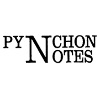Abstract
In the presidential election year 1 984, the American liberal left, with gaping mouth, found itself having already experienced four years of a Reagan presidency, and about to face four more. How had America arrived at such a point, when only twenty years before, Goldwater's defeat had marked Reagan as a "staunch proponent of seemingly outdated ideas" (Dallek 30)? Where was that liberal activism when Reagan was elected in 1980, "with only 28 percent of the eligible vote" (60)? What kind of political environment would allow a former movie and television actor to assume the powerful role of president of the United States? In Vineland, Pynchon looks at America during that election year and elaborates, in the form of the genealogy of heroine Frenesi Gates, its political malaise through a narrative representation of the twentieth-century American left's history and cooptation. Although many factors contributed to eclipsing the left's influence, Pynchon focuses on the cultural apparatus that simultaneously excuses and lays blame on the victim/participant-the apparatus of radio, film and television, whereby viewers are interpellated, according to the Althusserian definition, and come to desire their own commodification. Finally, Pynchon encourages us to read Vineland through the lens of traditional family values, thus establishing a reading code which provides a framework and closure for the novel, suggesting to some readers "the possibility of redemption," "a yearning for transcendence" (Porush 98, 104), or a recuperated salvation (Hayles 77–91). Instead, however, this code functions as what Fredric Jameson describes as "a preparation for the principal narrative … [as] a means to a more unexpected end" (163). In the unconscious of this principal narrative, the reader discovers both a shady political presence looming like Vineland's absent monster that left its footprint where the Chipco lab used to be, and an indictment of the transcendent and the history that results from our turning toward it.
How to Cite:
Pittman, B. L., (1992) “"Dangerously Absent Dreamers": Genealogy, History and the Political Left in Vineland”, Pynchon Notes , 39-51. doi: https://doi.org/10.16995/pn.232
Downloads:
Download PDF

